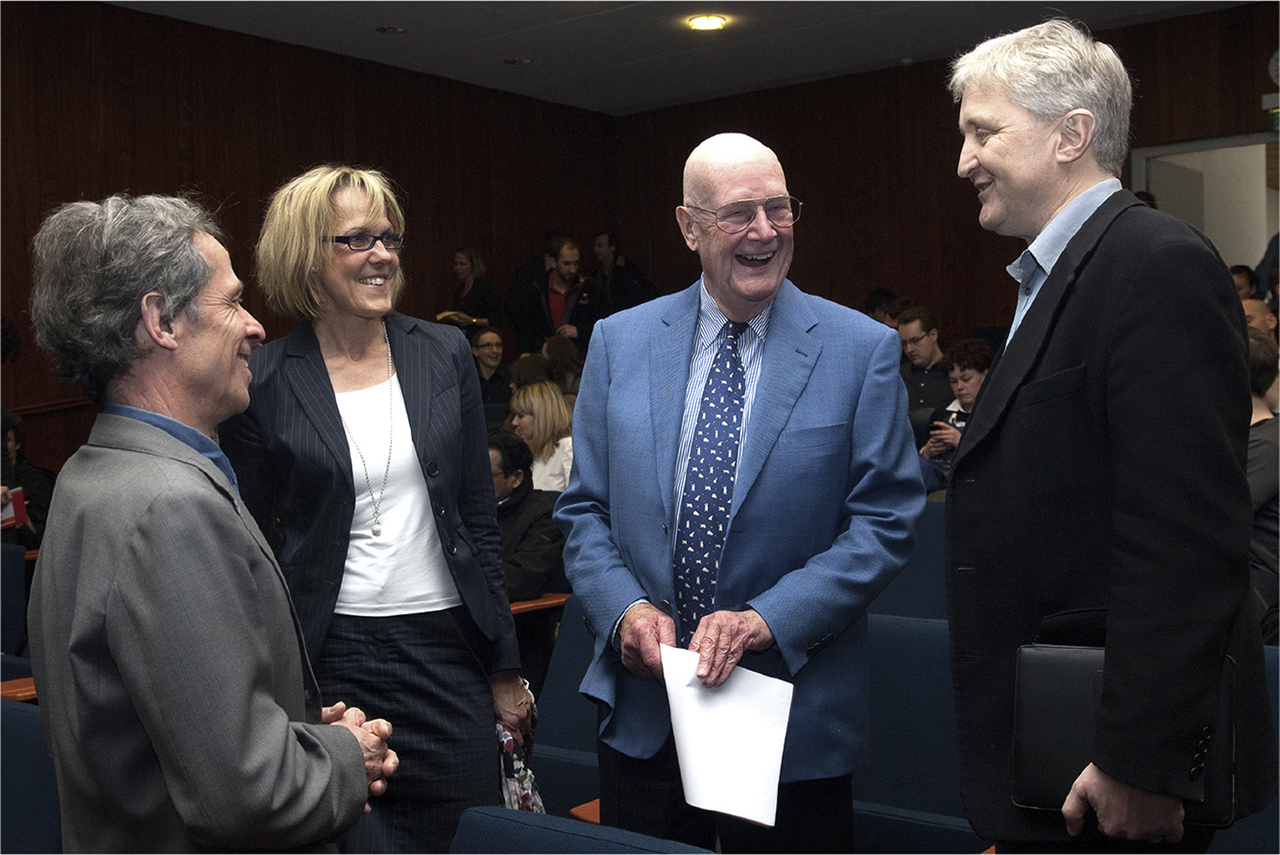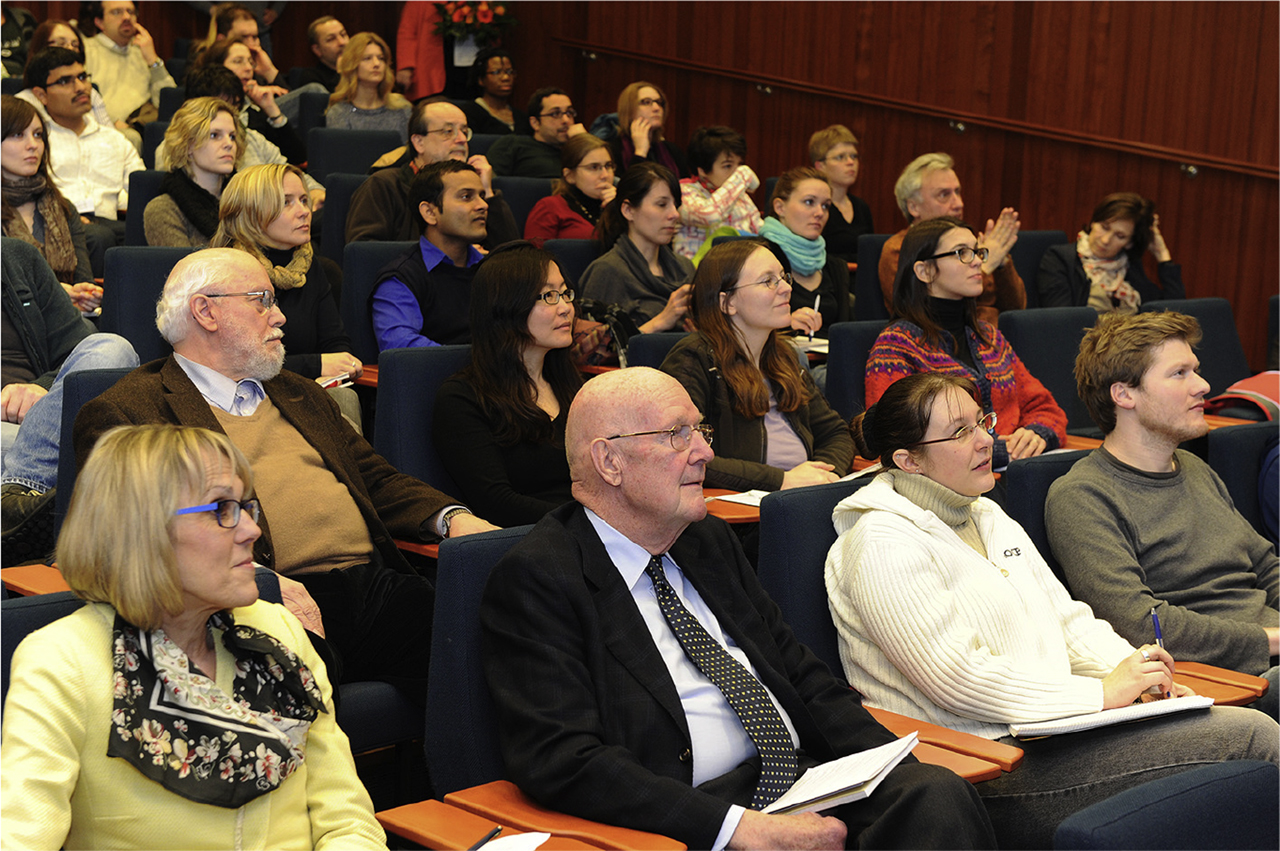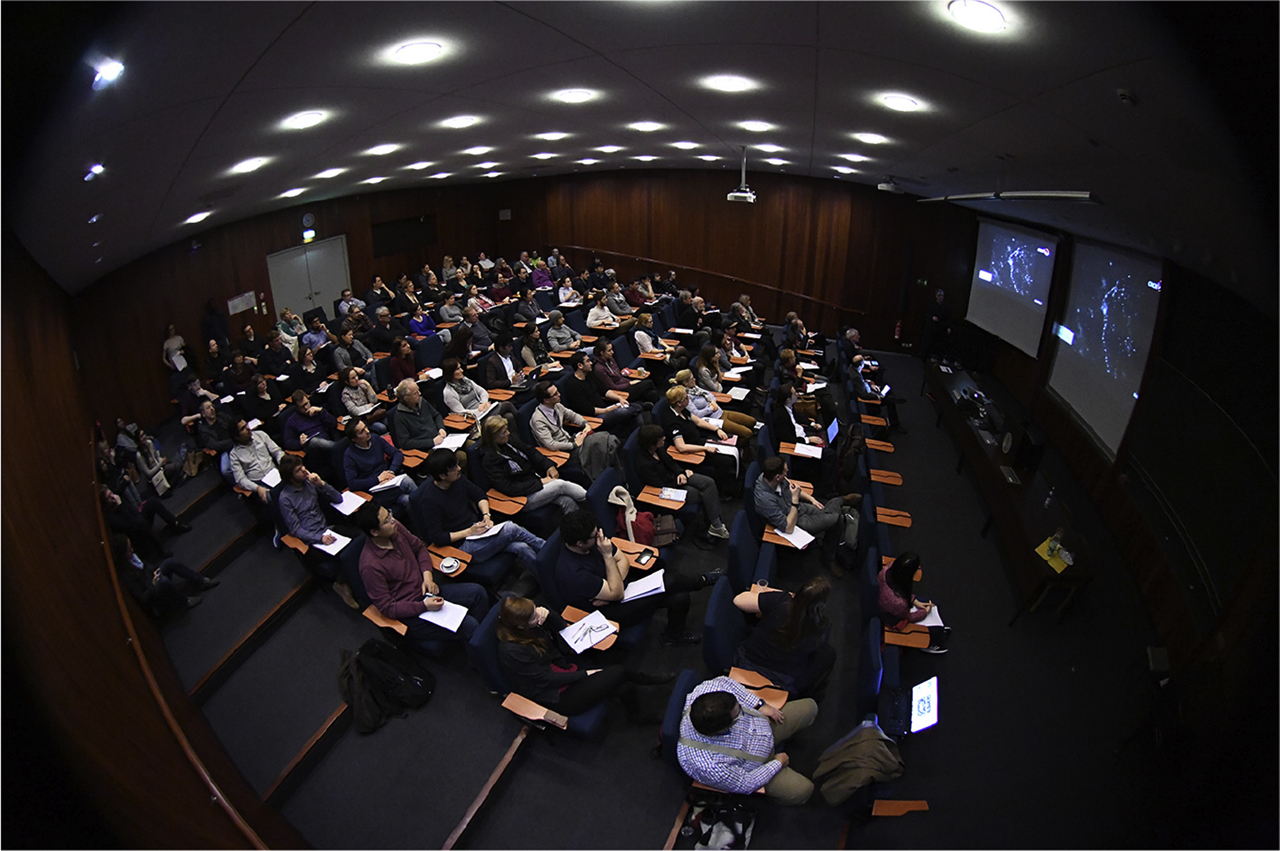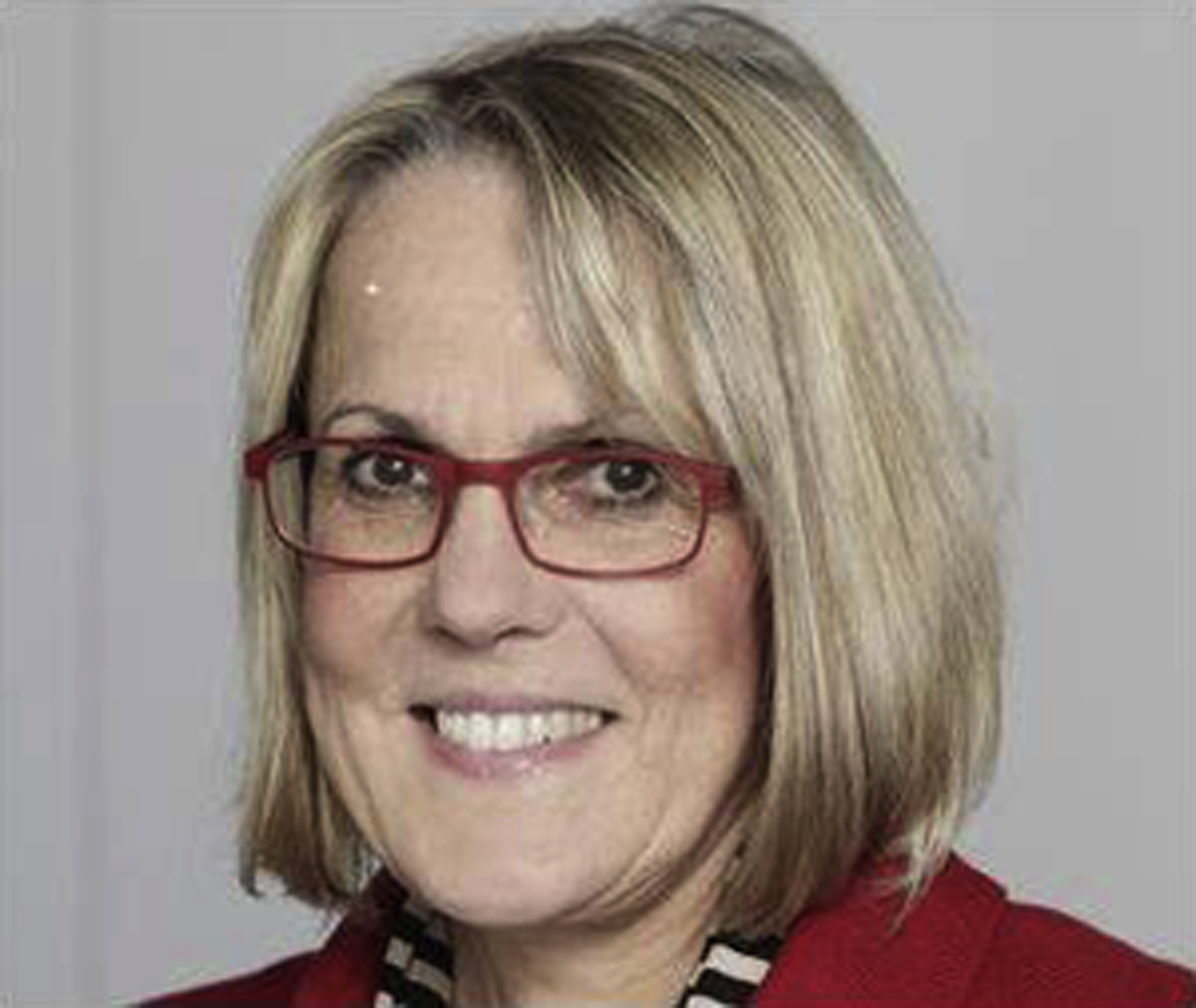Armin Schram: a sponsor of curiosity-driven brain research
-
Marilen Macher
At the age of 71, Armin Schram realized his life’s dream: In 2000, he established the Schram-Stiftung to promote science and research in the neurosciences.
Since his childhood and youth spent in St. Gilgen, Vienna, and Prague, Armin Schram was interested in the enormous performance power of the brain. Already as a child, he was fascinated by the waggle dance of the honeybees; as a teenager, he kept track of the research of the later Nobel Laureate Karl von Frisch. If the pin-size brain of the bees was capable of such great things, how much more must the human brain be able to achieve! “I am fascinated by brain research. The human brain is a miracle of nature”, he said at the inauguration of the foundation.
Armin Schram was convinced that without knowledge of the molecular processes in the brain, we will not be able to gain a full understanding of its complexity and its specific performance. As a result, he focused on basic research, leaving clinical research to other sponsors. “Research that aims for quick-to-achieve, specific goals will find funding more easily, no matter whether the goal is humanitarian, cultural, or medical. Where funding is scarce, progress and thus the well-being of people is best served in the long term by funding basic research.”
Armin Schram was also passionately interested in how scientific insights come about, frequently in ways that may not always look straight forward. He was very critical about the fact that our current science funding systems do not accept failures and dead ends, rather they primarily support research that promises short-term pay-off at manageable risks. He admired the tenacity of somebody like Ramón y Cajal, the founder of modern neuroscience. Cajal’s assumption that nerve cells are independent entities, for which he received the Nobel Prize in 1906, was corroborated only half a century later through electron microscopy.
Through his foundation, Armin Schram wanted to support researchers who are willing to break new ground and leave the “low-risk culture” behind. With its “Cellular Neurobiology” funding program, launched in 2004, the foundation addresses “Cajal’s modern heirs, pioneers who appreciate lateral thinking” and are not afraid of risk, i.e. independent young scientists such as heads of junior research groups, junior professors or young university teachers. To date, the foundation has issued seven calls and supported a total of 26 projects. The donor greatly enjoyed watching the growth of his “Schram family” and meeting the grant recipients at the “Schram Symposia” that took place since 2009 as satellite events of the Biennial Meetings of the German Neuroscience Society (Neurowissenschaftliche Gesellschaft – NWG). At these symposia Schram-funded project leaders present their latest research results. The donor’s “closing remarks” always addressed and encouraged the participants at a very personal level. However, not only the participation in the biennial symposia, was an important occasion to interact with his scientific family. Armin Schram was deeply and personally committed to advising and supporting all project leaders of the foundation. He appreciated the direct exchange with the funded scientists, visited the researchers in their labs in Frankfurt, Vienna or Jena to look over their shoulders, and was highly interested in the advanced techniques that they applied. And he was delighted when the NWG in 2011 made him an honorary member for his long-term and outstanding commitment to fundamental research in neuroscience.
Armin Schram was always aware that a foundation needs to rely on expert advice. As a result, he appointed two renowned neuroscientists, Heinrich Betz and Eckart Gundelfinger, to the foundation’s advisory board. Together, they set the course for the foundation’s program. Schram participated in the annual board meetings, demonstrating great expertise and spreading contagious enthusiasm. Well-prepared with a list of his favorites in the pocket, he only revealed his choice once the selection process of winning grants had been completed. Quite often, his “passionate layman’s” assessment was in complete accord with the ranking made by the advisory board based on external reviews.
Since Heinrich Betz’ retirement from the board, Christian Rosenmund and Dorothea Schulte have joined Eckart Gundelfinger in guiding the course of the foundation. In 2019, the board, together with the NWG, launched the “Armin Schram Lecture” to honor the donor and his accomplishments posthumously. The first lecture of this type was given by Volker Haucke from the Leibniz Research Institute for Molecular Pharmacology in Berlin-Buch, who was a grant recipient in 2009.
Armin Schram was confident that his foundation would not run out of research questions in the near future; like Cajal, he was convinced that the grey substance was so complicated “that it defies the tenacious curiosity of researchers — and will continue to do so for many centuries to come.”
Dr. Armin Schram: from the energy industry to neuroscience
(*January 31, 1929, Prague — †January 15, 2015, St. Gilgen)
After completing his studies of chemistry at the Vienna University of Technology (today: TU Wien), Armin Schram in 1953 joined the Deutsche Erdöl Aktiengesellschaft. In 1968 he became a member of the managing board of the company, which since 1970 has operated under the name of Deutsche Texaco AG. In 1979, he was appointed CEO of Deutsche Texaco AG.
Armin Schram ended his active career in 1993 as chair of the board of RWE-DEA and as a member of the board of RWE AG. Armin Schram had close ties to the Stifterverband für die Deutsche Wissenschaft: As board member of RWE AG, he was a member of the Hamburg/Schleswig-Holstein state board of trustees; in addition, he was a personal member since 1981. In 2000, he established the Schram-Stiftung under the umbrella of the Stifterverband to promote science and research in medicine and neuroscience, in particular in the field of brain research.
The Deutsches Stiftungszentrum (DSZ) of the Stifterverband für die Deutsche Wissenschaft e.V.
The Schram-Stiftung is managed by the Deutsches Stiftungszentrum (DSZ). The DSZ is the service center of the Stifterverband for donors and foundations. For more than 60 years, the DSZ has supported and advised donors on issues related to establishing a foundation and nonprofit and charitable foundations on realizing and achieving the goals set down in their charters. Currently, the DSZ supports 680 civil-law and trust foundations having a total endowment of more than EUR 3.1 billion. The nonprofit foundations have available ca. EUR 155 million for their foundation purposes per year. In the life sciences, several foundations focus their activities on neurology and neuroscience:
Hermann und Lilly Schilling-Stiftung für medizinische Forschung
The foundation was set up in 1970 by Aloysia Schilling in memory of her husband Hermann Schilling (d. 1961), former State Finance Councillor of the Preußische Staatsbank and CEO of the Vereinigte Elektrizitäts- und Bergwerks-Gesellschaft (VEBA).
Endowment capital: EUR 25 million
Funding programs
Schilling professorship and research group
The foundation supports excellent, innovative, and structurally pioneering research projects at the intersection of pre-clinical and clinical research in the neurosciences. The grants provide basic researchers in medicine and science with the opportunity to set up their own research groups and realize forward-looking, innovative projects in translational, neuroscientific research over an eight-year period.
Schilling research prize
The 20,000-Euro research prize is awarded every two years by the NWG for outstanding achievements in the field of brain research. The prize is given to young scientists no older than 35.
Stiftung zur Förderung junger Neurowissenschaftler
The civil-law foundation was established in 1999 by Professor Dr. med. Klaus Felgenhauer (1933—2002), former director of the Neurology Clinic at the University of Göttingen.
Endowment capital: EUR 1.35 million
Funding programs
Felgenhauer award
The 10,000-euro prize, which is offered by the foundation in cooperation with the Deutsche Gesellschaft für Neurologie (DGN), is awarded for outstanding accomplishments in neurobiologically oriented clinical research. Prize recipients are young scientists who should not be older than 30 years.
Felgenhauer symposium
The foundation selects a program proposal that has been accepted by the DGN for its Annual Meeting’s “Open Stage: Neuroscience” format, designates it as “Felgenhauer Symposium,” and awards it with a prize money of EUR 3,000.
Schram-Stiftung
The foundation was established in 2000 by Armin Schram.
Endowment capital: EUR 8 million
Funding programs
Schram grants in basic neuroscience
Every three years, the foundation offers its program “Brain Research – Research Grants in Basic Neuroscience” for independent young scientists who want to tackle and develop new research themes. Priority is given to innovative, partly high-risk projects using novel methodological approaches.
Schram symposium
At this satellite symposium of the NWG Annual Meeting in Göttingen, Schram grantees present their research results.
Armin Schram lecture
Keynote lecture as part of the NWG Annual Meeting in Göttingen.
Stiftung Deutsche Gesellschaft für Neurologie
The foundation was established in 2017 by the Deutsche Gesellschaft für Neurologie e.V. (DGN).
Endowment capital: EUR 1.07 million
Funding programs
Through its Stiftung Deutsche Gesellschaft für Neurologie, the DGN pursues a clear vision: neurology’s independence from third parties as well as the long-term, sustainable promotion of the aims of the DGN.
The foundation supports measures that are conducive to diagnostic and therapeutic progress in the whole field of neurology. It promotes talented young neurologists, conference and workshop participation, and is able to fund science prizes or research projects that do not find the necessary financial support elsewhere.
Deutsche Demenzhilfe — DZNE-Stiftung für Forschung und innovation
The foundation was set up in 2018 by Dr. h. c. Erwin V. Conradi in memory of his wife Karin Christiane Conradi.
Endowment capital: EUR 1 million
Funding programs
The foundation aims to promote science and research, in particular in the field of neurodegenerative diseases; a main concern is funding the activities of the Deutsches Zentrum für Neurodegenerative Erkrankungen e.V. (DZNE) in Bonn. Here, a particular focus is on work that aims to translate the results from basic research into practice and the “Querdenker-Programm” (unorthodox thinker program) open to young researchers with innovative ideas outside the scientific mainstream.

Side conversation during the second Schram Symposium 2011 at the Max Planck Institute for Experimental Medicine in Göttingen. From left to right: Heinrich Betz (Board member), Marilen Macher (Board member, Stifterverband), Armin Schram (the Founder) and Klaus-Armin Nave (Director at the host institution).
Figure 1: blende-elf, Wolfgang Rink

Armin Schram in the audience of the third Schram Symposium 2013 in Göttingen. Foto: Peter Himsel

Lecture during the fifth Schram Symposium 2017 in Göttingen. Foto: David Ausserhofer
About the author

Marilen Macher heads the Department Science and Environment at the Deutsches Stiftungszentrum (DSZ) in the Stifterverband. She studied biology in Cologne and Gießen and performed doctoral research at the Institute for Plant Ecology in Gießen. Since 1990 she has been working at the DSZ. She joined the Board of the Schram Foundation in 2000.
© 2020 Walter de Gruyter GmbH, Berlin/Boston
Articles in the same Issue
- Frontmatter
- Editorial
- Editorial
- Review articles
- Synapses, networks, brain development – funding basic neuroscience research in Germany by the Schram Foundation
- Neuronal functions of clathrin-associated endocytic sorting adaptors – from molecules to disease
- Mechanisms of synaptic vesicle recycling provide a platform to explore mechanisms of neurodegeneration
- Optogenetic analyses of neuronal networks that generate behavior in Caenorhabditis elegans
- Direct contribution of angiogenic factors to neurodevelopment: a focus on angiopoietins
- The role of the dentate gyrus in mnemonic functions
- Presentation of scientific institutions
- Armin Schram: a sponsor of curiosity-driven brain research
- Nachrichten aus der Gesellschaft
- Nachrichten aus der Gesellschaft
Articles in the same Issue
- Frontmatter
- Editorial
- Editorial
- Review articles
- Synapses, networks, brain development – funding basic neuroscience research in Germany by the Schram Foundation
- Neuronal functions of clathrin-associated endocytic sorting adaptors – from molecules to disease
- Mechanisms of synaptic vesicle recycling provide a platform to explore mechanisms of neurodegeneration
- Optogenetic analyses of neuronal networks that generate behavior in Caenorhabditis elegans
- Direct contribution of angiogenic factors to neurodevelopment: a focus on angiopoietins
- The role of the dentate gyrus in mnemonic functions
- Presentation of scientific institutions
- Armin Schram: a sponsor of curiosity-driven brain research
- Nachrichten aus der Gesellschaft
- Nachrichten aus der Gesellschaft

